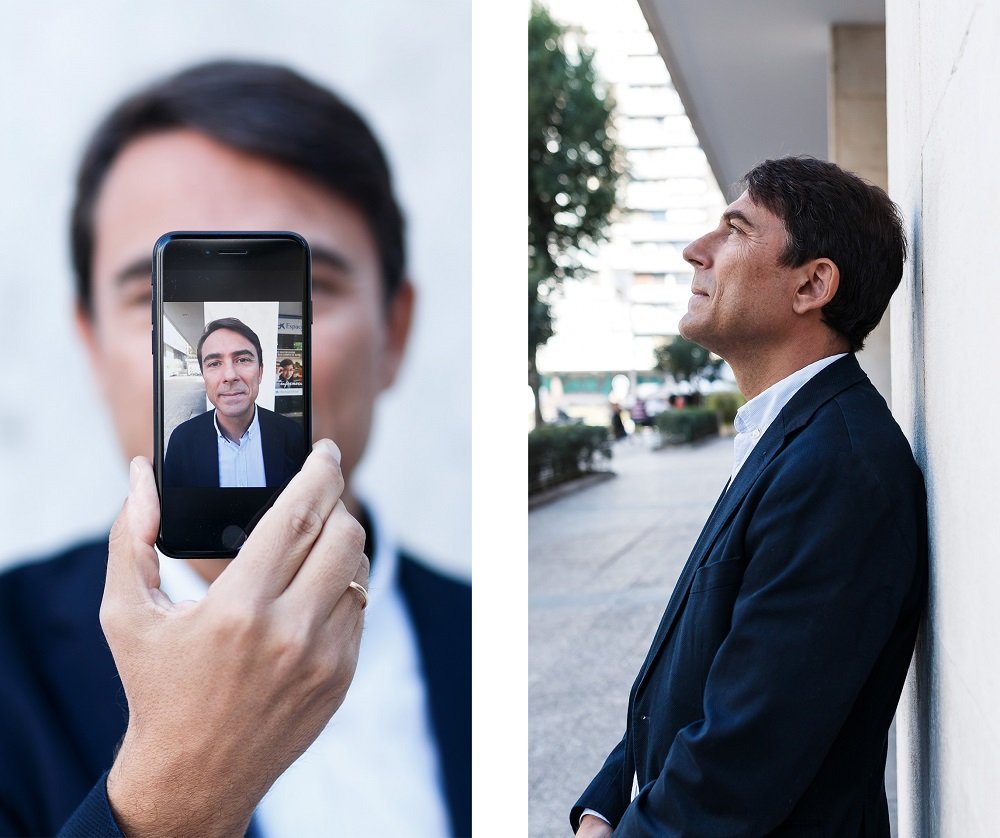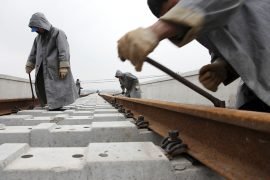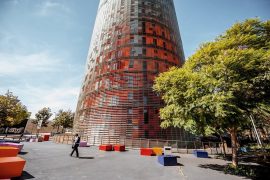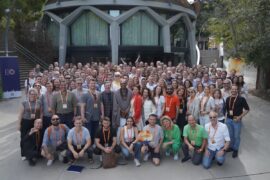It seems that, nowadays, the cult of youth and the passion for new discriminates old people. Since when is this happening? Our parents did not marginalize the previous generation…
Since they treat us more as consumers than as citizens. The big companies, that have a lot of power, create a social stereotype of success linked to youth and beauty. The important thing is not that much what you are but what you look like, seems important to show a happy profile, and that stereotype is far from what the elders are. In the end, we conclude that they are not cool. But, in reality, they can guide us in so many things… They have the experience of a lifetime!
You have researched and written about the media formation of the elderly, and you are currently collaborating with Obra Social “la Caixa” in various initiatives linked to old people and new technologies. How did the topic start interesting you?
I was struck by the fact that my mother, that had been a teacher, when she was 69 years old she completed two computer courses. She asked me basic computer questions, such as “how to upload a document to a website”. I thought: “There’s an issue, here”. We were not teaching the elderly well, and that was leaving them out of the game. We started to assemble many discussion groups and attend many classes to see how they did it.
And what did you conclude? What had to change of the classes?
First, teachers should not be so young, so that they understand the circumstances of the students and transmit better. Afterwards, we have verified that it is preferable to go slower and ensure the knowledge that rushing to fulfill the program. Older people need to repeat a lot to learn something. Then, there is also the issue of the diversity of levels in the classes, which is solved by making those who are more advanced mentors of others. And of course, there are other issues, such as the size of the letter, often too small, or the laptop mouse, which asks them for a tactile precision that they may not have. But hey, in the end the key is empathy. Understanding the one who has few studies, or has not seen a computer in his life, or has an older computer in his house and does not recognize the icons in class…
What feedback do you receive after the course?
They are very satisfied and feel fulfilled. They tell you: “These classes have been great for me, because my children are in Canada and thanks to the fact that I now know how to use Skype, I can see my grandchildren”. Or: “Thanks to Facebook, I managed to get back in touch with a lot of friends from the university, and now I meet them to have coffee”.
You state that technology is more useful for older people than for other social groups.
Yes, because it allows them to access a series of services that the rest do not need so much. For example, if an elderly person needs to buy milk or water, which is heavy to carry, they can do the purchase online and receive the goods at home. Or when interacting with the public administration online, they avoid the need of going to a place that can be far away. Another of his problems, especially when they are widowed, is loneliness. And new technologies make easier the possibility of keeping in touch with relatives, old friends, etc.
Is it never too late to learn?
Never. Look, doing research we’ve created discussion groups with older people, and there once was an 88-year-old lady with mobility and vision problems who was the most dominant in Facebook and everything. Amazingly close to becoming a hacker!
Do you think that all seniors are interested in new technologies? Because many say they that it is not for them…
That is due to technological anxiety. They are afraid that they may not be good enough, afraid of breaking something or touching the wrong button and erase everything… But if you ask them if they believe that technology is necessary, the vast majority says yes.
What can we do, on a personal level?
First, manage to find a way so that give themselves an opportunity. By telling them, for example: “Look, once you’ve tried it, if you do not like it you can leave it, but try it first”. And, above all, be patient. When I sit down with my mother at the computer, after five minutes I am already looking forward to leaving. But we have to remember when we were little fools and they taught us to sum up numbers patiently. Let’s give them back everything they gave us.
What would a society with well-integrated older people look like?
There would be more intergenerational communication, less solitude, easier medical assistance, a richer political debate (since the political discussion today is on Twitter, Facebook, blogs, etc.)… And then, as for the intangible situations, our elders would probably be more satisfied with a more active life. Something evident in small things, for example I could send jokes about Barça to my father -who is also a supporter of the Barcelona football team but does not use WhatsApp- and it would be great to be able to integrate him into the football group and therefore be able to share more with him. If we want a full and dignified society, we need to integrate and let the elderly participate. Remember that in 2020, 1 of every 4 people will be over 65 years old. They are the future of our society.
Interview: Ana Portolés
Photograph: Miriam Herrera
You can read more stories like this on ALMA, the social social media, a digital space devoted to the social field, which brings a new look at the present and the future of society, from an optimistic and diverse point of view, and from all the initiatives that “la Caixa” Foundation promote.






















